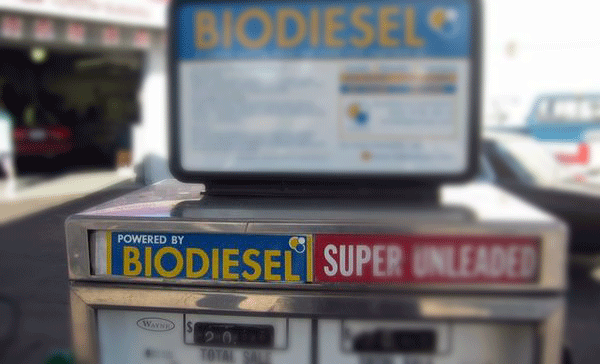
With UK fuel prices surging towards the £1.50 mark, interest in biofuel and namely biodiesel has increased vastly. Producing and running your car on your own fuel does sound like a very romantic and thrifty idea but there a few points that you should consider before taking the plunge into the world of biodiesel.
Will using biofuel damage my car?
One of the biggest differences between biodiesel and forecourt diesel is the fuel’s viscosity (thickness). Most modern diesel engines are equipped with fuel pumps that are not designed to deal with the “thicker” biodiesel. Using blends above b5 (5% biodiesel) could result in failure of the fuel pump in a very short period. Biodiesel also has a higher water content than conventional diesel so its recommended that the engine oil and filters should be changed more frequently to avoid corrosion.
Will my car run on 100% unblended biodisel?
From 2010 fuel retailers were legally obliged to mix five per cent biodiesel with 95 per cent conventional diesel, this is known as B5. Blends at these levels will not do any damage to fuel systems and will not require any adjustments. Some manufacturers are offering cars that have the ability to run on higher blends up to B30 (30% biodiesel blend) however this is not the norm.
A selection of older diesel cars are capable of running on higher blends such as b100 (100% biodiesel) however this is often down to the fuel pump which is fitted. Its also worth noting that some car manufacturer’s are aware that customers maybe using or considering biodiesel and have specific warranty clauses covering this. For example Ford’s warranty stipulates that only blends of up to b5 (5% biodiesel) maybe used.
It is possible to install kits that will enable the use of higher biodiesel blends, these involve a twin tank setup that uses heated fuel pipes and filters to raise the temperature of the fuel. The heating process thins the fuel down to a level that enables the fuel system to safely use the fuel.
Whichever blend you choose, if from a retailer should meet the standards of BS14214.
[ad]
Where can I get waste vegetable oil?
The b5 you are currently using will have been produced from plant oils, this is most commonly rape seed oil or palm oil. If you are producing it for your own use, the most cost effective way of procuring the oil would be to source a supply of WVO (waste vegetable oil). Many restaurants have to pay for their used cooking oil (WVO ) to be removed and processed. It’s worth approaching your local chip shop or fast food joint to see if you can come to some arrangement. Using WVO will require additional processes to remove any contaminants and excess water.
Will I say money by making my own biodiesel?
There are a large number of suppliers that offer biodiesel processors to the UK market. Many of these can be used without little technical knowledge of the process. It’s often quoted that biodiesel production could cost you less than 20p per litre which depending on your annual mileage could see you in the black within less than a year.
If your annual mileage is very high or you are considering making biodiesel for your own small fleet then please bear in mind that as of January 2010, each person is assigned a 2,500 litre allowance per year for biodiesel production. You are not required to inform HMRC unless your level of production is in excess of the above quota, however if you go over this limit you will be required to pay duty on the fuel you are producing. See the HMRC website for further information on this and other legislation related to biofuel production.
We hope that the above clears up any misconceptions you may have about making your own biodiesel at home, if you have any further questions regarding the process or legalities then please leave a comment below.

